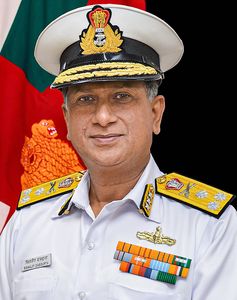Professional military education of the officer corps of any country is a strong determinant of the quality of its armed forces. Military officers are expected to be proficient in the management of violence. War is the ultimate arbiter of relationships between nations. It is also the most undesirable of measures adopted by any country in today’s age when weapons of mass destruction threaten mutually assured destruction. Every avenue of diplomacy, negotiation and coercion must be exhausted before contemplating military conflict. For managing violence, therefore, several questions need to be considered.
What priorities drive the nation’s policies? What importance does the government accord to different components of national security? Where do the armed forces fit in? What are the expectations from them in peace and war? Does the institutional design within and outside the armed forces enhance their effectiveness? How does the relationship of the military leadership with other civilian power groups such as politicians, bureaucrats, diplomats, scientists, academics and industry synergise national security interests? What are the safeguards against falling prey to partisan or narrow interests?
Wider understanding of these questions is the sine qua non of the management of violence. It is the duty of governments ensure that the leadership of the armed forces is intellectually equipped to discharge their responsibilities. This is enabled by professional military education. Many questions regarding national security fall outside the core competence of the military officer corps and requires the indulgence of the civilian political leadership, apex bureaucracy and academia.
The training establishments of the armed forces have a historical legacy of professional training expertise that are second to none. Not surprisingly therefore, the Indian armed forces are known for their professionalism. Professional military education, however, is more than professional training. While the latter is more technical in content, the former provides the broader base for understanding matters that impinge upon national security. This includes appropriate knowledge of history, political science, international relations, technology and governance to name a few.
Officers of the Indian armed forces undertake periodic courses to prepare them for higher responsibilities. These courses are ‘training-heavy’ as it should perhaps be at junior levels, up to the rank of Major and equivalent. Beyond that, they should progressively become ‘education-heavy’ culminating at the level of the National Defence College where only the ‘big picture’ is screened. For this, three essentials have been identified by several high-level committees in the past.
First, there is a need to revamp syllabi in military institutions of higher learning. This must be done by a core group of experts, including specially chosen military officers. This same committee should ideally review syllabi of the Defence Services Staff College, the three War Colleges, the College of Defence Management and the National Defence College as they could then curate a graded enrichment of the syllabi in keeping with the learning objectives of each institution.
Second, there is a need for permanent civilian faculty in these institutions. Military officers are not necessarily good educators. Their upbringing is training-focused and hence many may not even realise the value of a well-rounded professional military education. They are also appointed for short durations for meeting other career milestones. Permanent civilian faculty alongside military officers will provide continuity, diversity, alternate viewpoints and specific expertise, all so essential for quality professional military education.
Finally, India must have a defence university. It is understood that the armed forces had strongly recommended the establishment of such a university, to be named the Indian National Defence University (INDU). Land too, was identified close to the National Capital Region and for a while, it seemed all was moving well before the proposal suddenly went off the radar.
In the meanwhile, the Raksha Shakti University in Gujarat got rechristened in 2020 as Rashtriya Raksha University (RRU), a Central University under the aegis of the Ministry of Home Affairs. The charter of this university covers internal and coastal security and it has no mandate over ‘defence’ education. There is hence no conflict of either mandate or interest if a separate defence university is established.
The defence university should coordinate professional military education, provide academic cover to identified military institutes, be the centre of excellence of defence research and run specialised courses for both military personnel and civilians. This would also generate better military expertise non-military people, the lack of which is an acknowledged weakness.
The proposal to establish a defence university is not the military’s fervent plea though it has been made out to sound like one. The military has been proactive to recommend what is in the national interest. The government must consider the matter urgently. Getting the professional military education model in India right will pay rich dividends. Not doing so will reflect abject strategic myopia.
The author is a former Commander-in-Chief of India’s Eastern Naval Command.
The opinions expressed in this article are those of the author and do not purport to reflect the opinions or views of THE WEEK.



